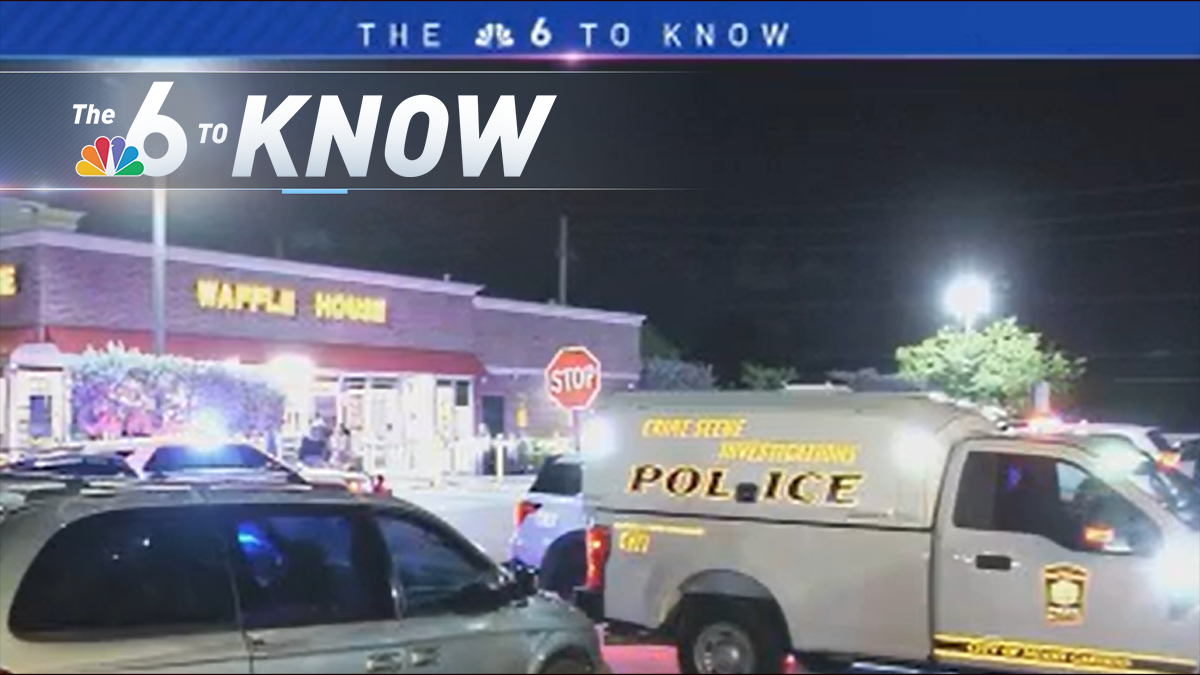
Newly implemented metal detectors caused major delays at several schools in Broward County on the first day of the school year. NBC6’s Ari Odzer reports
As students headed back to school in Broward County Monday, they were met with long lines as they tried to pass through the metal detectors that were installed at the entrance as part of a new initiative for the 2024-25 school year.
On Monday, 38 schools had walk-through metal detectors up and running, which meant every student must pass through them on their way to school.
Watch NBC6 free wherever you are
And as could be expected, it was a logistical challenge.
Superintendent Dr. Howard Hepburn told NBC6 they "expected kinks" for the first day of school as they introduced the new measure and that the security team at the district is meeting to figure out how to make the process smoother.
Get local news you need to know to start your day with NBC 6's News Headlines newsletter.
"One component of that is educating students on what they need to take out of their backpacks," Hepburn said. "At some point this morning, they just let in all the students who were stuck outside into the buildings."
At Marjory Stoneman Douglas High School, video taken by one viewer showed students standing in a long line waiting to enter the school.
Video captured by Chopper 6 also showed the lengthy process at MacArthur High School, as students walked one by one through the detectors.
And at West Broward High, students lined up along the sidewalk which stretched past the entry fence of the school.
In a post on X, formerly Twitter, the school district apologized to students and their families for the wait and reminded them to remove any metal from their bags to speed up the process. Hepburn said in a news conference that a majority of the delays were due to students holding onto items that should be removed from their bags, such as larger electronic items and umbrellas.
“Ensuring that you’re taking out items before you get to the metal detectors counts, if you add one additional minute per kid, that does add an hour or more to the whole process," Hepburn said. "So it’s about efficiency, we’ll correct some of those things over the next couple of days working with our teams.”
But school officials emphasized that no weapons or any dangerous, forbidden items did not make it to school campuses on Monday.
“This is an additional layer of security for our schools,” Hepburn said days before school started, pointing out that the metal detectors are just one part of the overall school security picture. “Are we gonna be very efficient on day one? No, we’re still working out the kinks, so there may be some small delays, our school principals and their staff will work with you."
The neighboring school district to the south, Miami-Dade County Public Schools, had a different view of walk-through metal detectors.
When it comes to school security, “One tool or one piece of equipment doesn’t solve it all,” said Miami-Dade superintendent Dr. Jose Dotres.
Broward Schools agreed with that, saying security is always multi-layered. They tested their system in summer school and learned that some common items such as laptops, umbrellas, and three-ring binders will cause the metal detectors to alert.
Officials also briefed on the district's updated cellphone policy that went into effect Monday. Students must put away their phones and turn them off or put them on airplane mode. The restrictions will be enforced from the start of the school day until the end, including during lunch. The new move also completely bans headphones, including AirPods.
Hepburn said he spoke to some students, who, as expected, "hated" the policy, but noted it encouraged them to talk to their friends instead of looking at their phones.
“It’s a transition for students, it's new to them," Hepburn said.
There will be a two-week grace period for students to adjust to the new restrictions.



